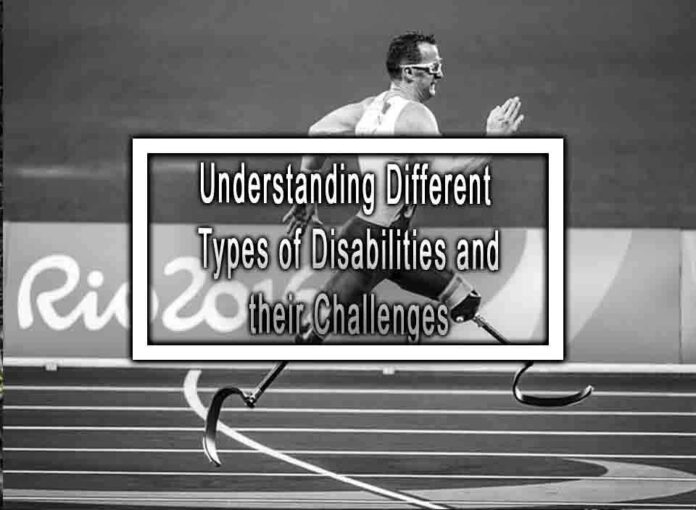Disabilities encompass a wide range of conditions that can affect a person’s physical, cognitive, sensory, and emotional functioning. Each disability comes with its own set of challenges, and it’s important to understand and respect the experiences of individuals with disabilities. Here are some common types of disabilities and the challenges they may face:
1. Physical Disabilities:
Physical disabilities involve limitations in mobility and physical functioning. Challenges include:
- Mobility Restrictions: Individuals with mobility impairments may use wheelchairs, crutches, or assistive devices for movement.
- Accessibility: Navigating environments that lack ramps, elevators, or accessible facilities can be challenging.
- Personal Care: Activities of daily living like dressing, bathing, and grooming may require assistance.
- Stigma and Stereotypes: Social attitudes and misconceptions can lead to discrimination and exclusion.
2. Cognitive Disabilities:
Cognitive disabilities affect cognitive processes, including memory, attention, problem-solving, and learning. Challenges include:
- Learning Differences: Difficulties in processing information can impact education and work performance.
- Communication Barriers: Expressing thoughts and understanding others might be challenging.
- Executive Functioning: Organizational skills, time management, and decision-making may be impaired.
- Stigma and Misunderstanding: People may underestimate the capabilities of individuals with cognitive disabilities.
3. Sensory Disabilities:
Sensory disabilities affect the senses of hearing, vision, and sometimes touch and taste. Challenges include:

- Communication Barriers: Deaf or hard-of-hearing individuals may face challenges in understanding spoken language.
- Visual Impairments: Blindness or low vision can impact navigation, reading, and accessing information.
- Isolation: Limited sensory input can lead to feelings of isolation and difficulty engaging with the world.
4. Emotional and Mental Health Disabilities:
Emotional and mental health disabilities encompass conditions like depression, anxiety, bipolar disorder, and schizophrenia. Challenges include:
- Stigma and Discrimination: Negative attitudes toward mental health can prevent seeking help.
- Daily Functioning: Managing emotions, relationships, and daily tasks can be difficult during episodes.
- Access to Treatment: Accessing appropriate mental health care and support can be a challenge.
5. Invisible Disabilities:
Some disabilities aren’t immediately apparent, such as chronic pain, autoimmune disorders, and certain mental health conditions. Challenges include:
- Lack of Understanding: Others may not perceive the disability, leading to skepticism or misunderstanding.
- Fatigue and Pain: Chronic pain and fatigue can affect daily activities and work.
- Advocacy: Advocating for accommodations can be challenging when the disability isn’t visible.
It’s important to approach individuals with disabilities with respect and empathy. Recognize that each person’s experience is unique, and what might be a challenge for one person might not be the same for another. Emphasizing inclusion, accessibility, and understanding can help create a more inclusive and supportive society for people with disabilities.










